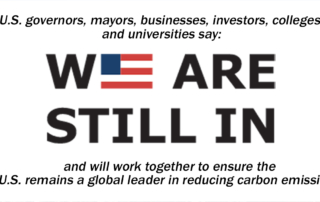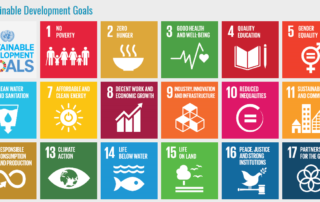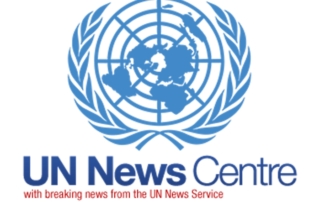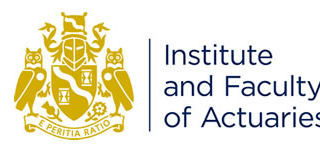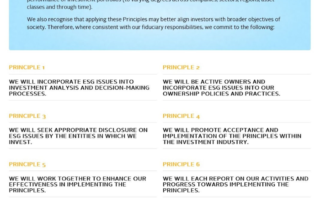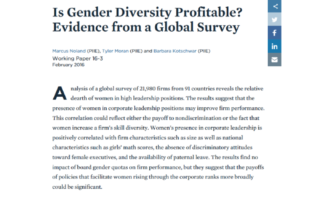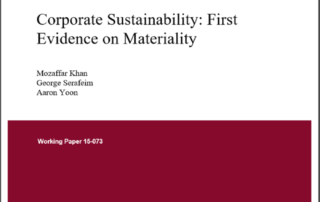We Are Still In
U.S. state, local, and business leaders came together in June 2017 to confirm their commitment to the Paris Agreement and continued efforts to reduce carbon emissions. Importantly, signatories express the many reasons behind their support for the agreement, including its role as a driver of economic growth and job creation through investment and innovation. http://wearestillin.com/
